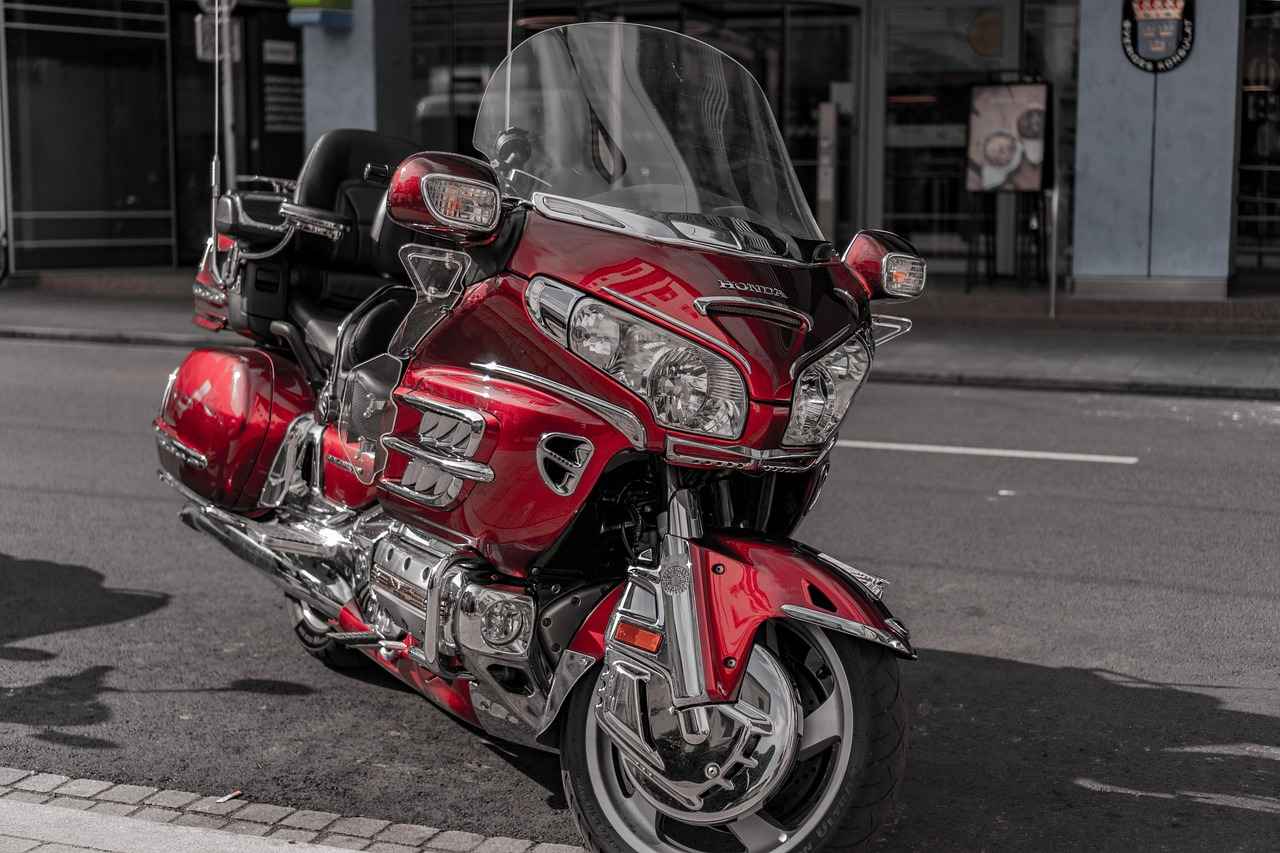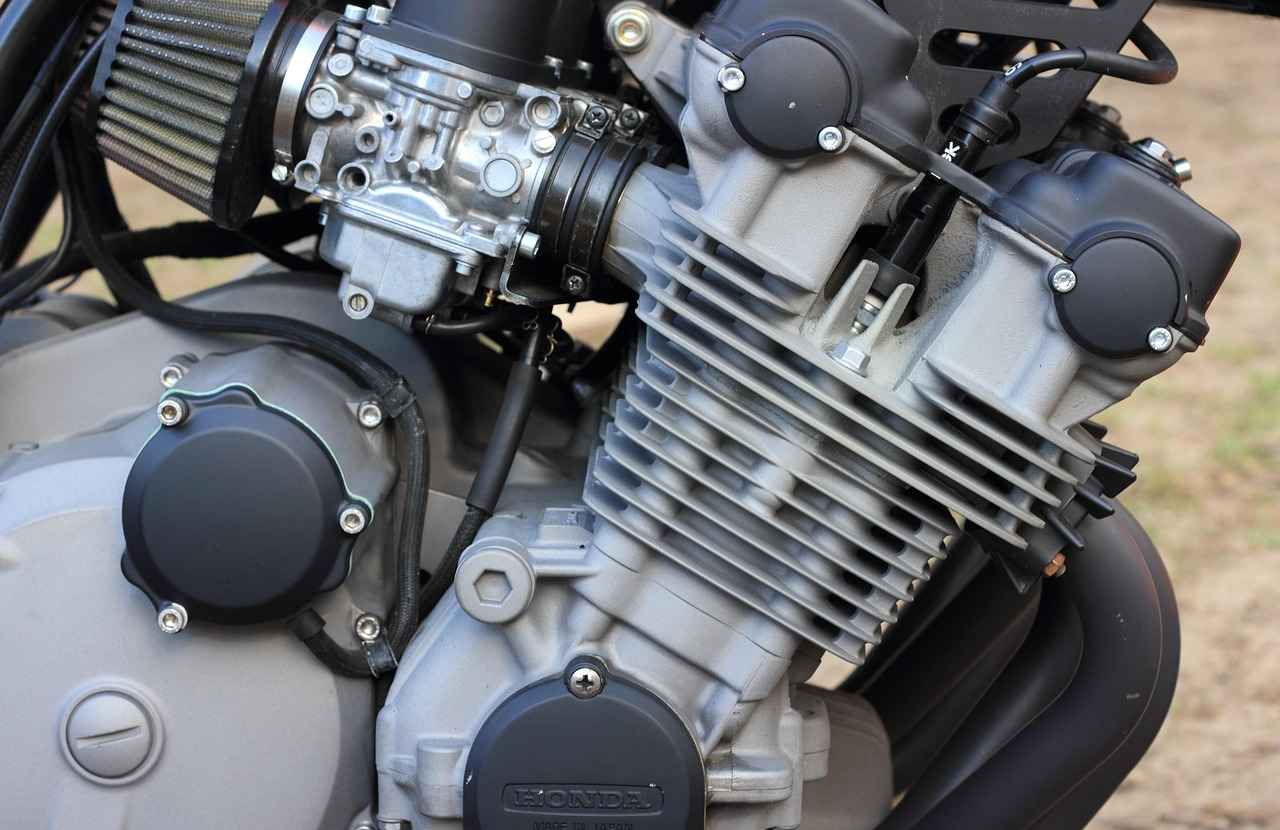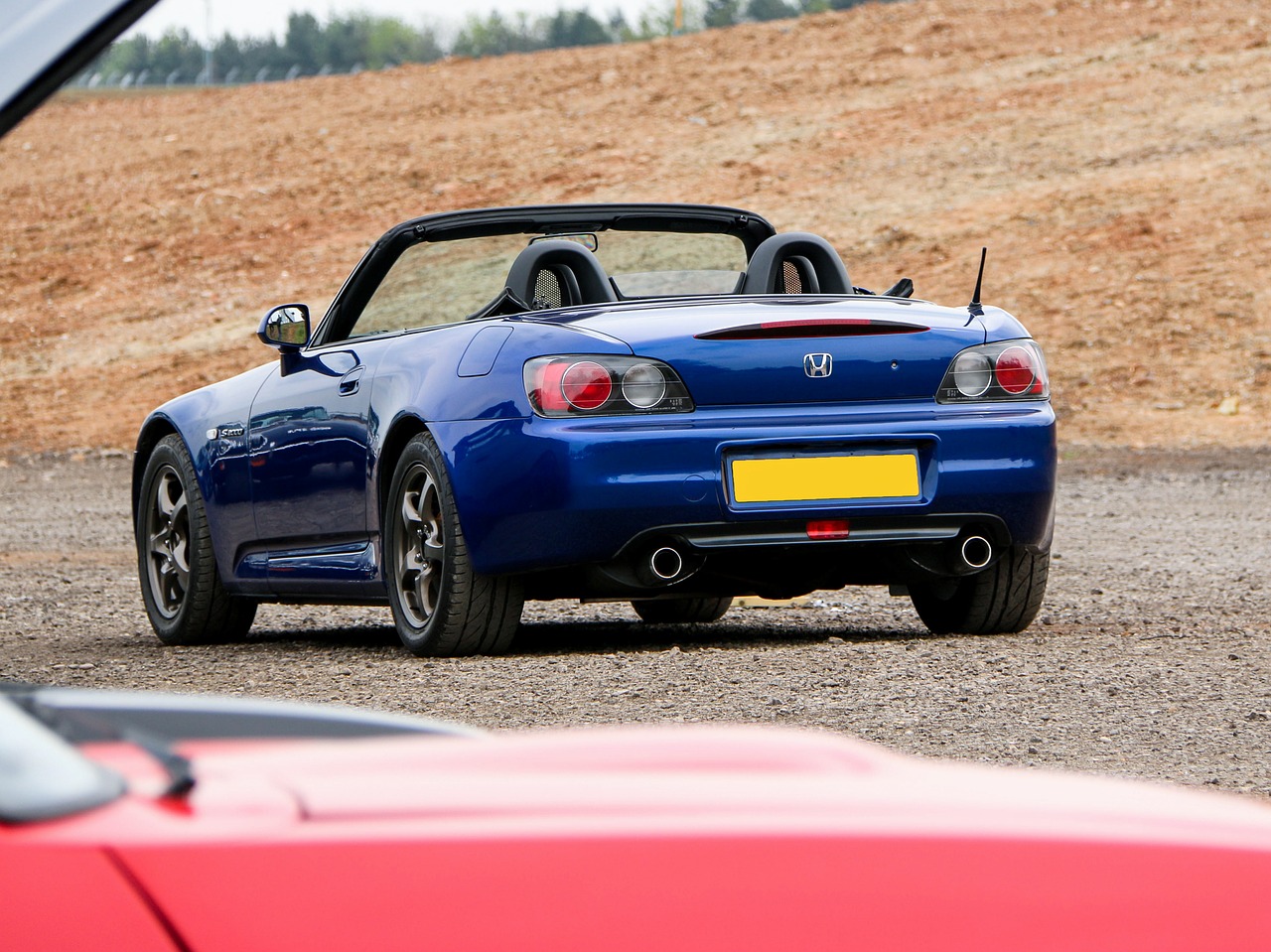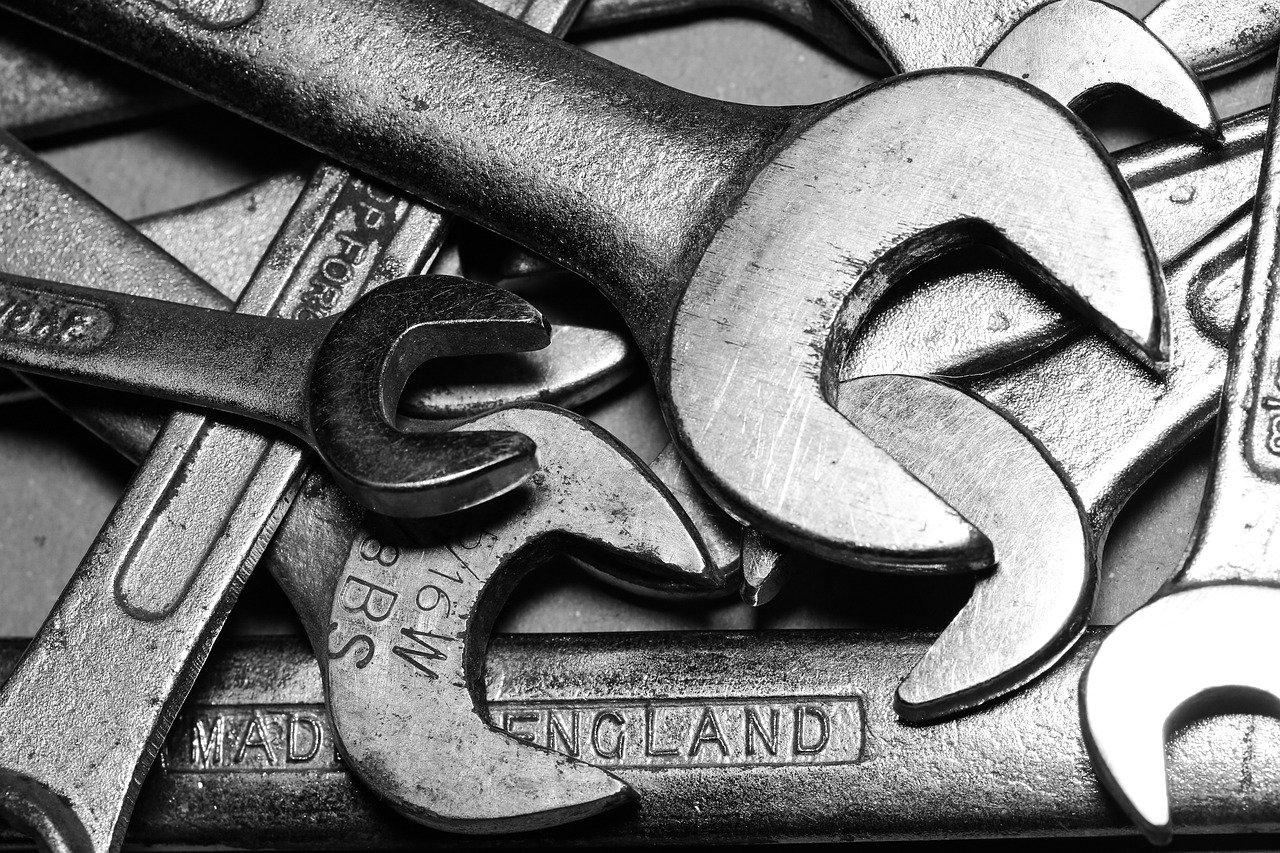The Honda Accord has established itself as a staple in the sedan market, renowned for its reliability and longevity. This article examines how long a Honda Accord can last, the factors influencing its lifespan, maintenance tips, and insights from current owners. Understanding these elements can help potential buyers and current owners alike maximize the lifespan of this iconic vehicle.
The average lifespan of a Honda Accord typically ranges from 200,000 to 300,000 miles. This range can vary based on several factors, including the model year, driving conditions, and how well the vehicle is maintained. Many owners have reported their Accords lasting well beyond 300,000 miles with proper care.
Several factors play a crucial role in determining how long a Honda Accord will last, including:
- Regular Maintenance: Routine check-ups and servicing are essential.
- Driving Habits: Gentle driving can significantly extend the vehicle’s life.
- Environmental Conditions: Harsh climates can lead to wear and tear.
- Model Year: Some years have had more reported issues than others.
Regular maintenance is vital for extending the life of your Honda Accord. Key tasks include:
- Oil changes every 5,000 to 7,500 miles.
- Tire rotations and brake inspections.
- Fluid level checks and air filter replacements.
By adhering to these maintenance practices, owners can significantly improve the vehicle’s performance and longevity.
Driving habits have a profound impact on how long a Honda Accord lasts. Gentle acceleration and braking can help preserve the engine and transmission. Avoiding aggressive driving not only contributes to fuel efficiency but also reduces wear and tear on critical components.
Environmental factors such as climate and road conditions can significantly affect the lifespan of a Honda Accord. For instance:
- Extreme Temperatures: Both hot and cold climates can affect engine performance and battery life.
- Road Conditions: Driving on poorly maintained roads can lead to increased wear on tires and suspension systems.
While Honda Accords are generally reliable, certain model years may experience common issues:
- Transmission Problems: Some older models, particularly from 2003-2007, have reported transmission issues.
- Electrical Failures: Faulty wiring and battery problems can arise, affecting the vehicle’s performance.
Owner testimonials provide valuable insights into the Honda Accord’s durability. Many owners express high satisfaction levels due to the vehicle’s reliability, often citing their experiences of surpassing 300,000 miles with minimal issues. Consistent maintenance and careful driving habits are frequently highlighted as key factors in achieving long-lasting performance.
Numerous Honda Accord owners share stories of their vehicles achieving remarkable mileage, reinforcing the model’s reputation for durability. These success stories often serve as motivation for potential buyers considering a Honda Accord.
Testimonials emphasize the importance of adhering to a regular maintenance schedule. Many owners report that taking proactive measures in maintenance has led to fewer issues and extended vehicle lifespan, showcasing the Honda Accord as a wise investment for those prioritizing reliability.

What is the Average Lifespan of a Honda Accord?
The Honda Accord has long been celebrated for its exceptional reliability and performance. Many drivers are curious about how long they can expect their Honda Accord to last. The average lifespan of a Honda Accord typically ranges between 200,000 to 300,000 miles, but this can vary based on several critical factors. In this section, we will explore the factors that influence this lifespan, as well as tips for maximizing the longevity of your vehicle.
Several key elements can significantly impact the lifespan of a Honda Accord:
- Regular Maintenance: Adhering to a strict maintenance schedule is essential for prolonging the life of your vehicle.
- Driving Habits: How you drive can either enhance or diminish your car’s lifespan.
- Environmental Conditions: Factors such as weather and road conditions can have a profound impact on vehicle durability.
- Model Year: Different model years may have distinct strengths and weaknesses that can affect longevity.
Regular maintenance is crucial for ensuring that your Honda Accord remains in top condition. This includes:
- Oil Changes: Frequent oil changes help keep the engine clean and running smoothly.
- Tire Rotations: Rotating tires regularly promotes even wear and extends tire life.
- Brake Inspections: Regular brake checks prevent potential safety issues and enhance longevity.
Experts recommend servicing your Honda Accord every 5,000 to 7,500 miles. This interval can vary based on driving habits and the type of oil used. Following the manufacturer’s guidelines is essential for optimal performance.
Your driving style can have a significant effect on the lifespan of your Honda Accord. Gentle driving, avoiding sudden acceleration and hard braking, can lead to:
- Less wear on the engine and transmission.
- Improved fuel efficiency.
- Extended overall vehicle lifespan.
Environmental factors such as climate and road conditions can impact your Honda Accord’s durability. For example:
- Extreme Temperatures: Both hot and cold climates can affect engine performance and battery life.
- Road Conditions: Driving on rough or unpaved roads can lead to increased wear on tires and suspension components.
While Honda Accords are generally reliable, some issues have been reported in specific model years. Common problems include:
- Transmission Problems: Particularly in older models, addressing these issues promptly can prevent further damage.
- Electrical System Failures: Regular checks can help mitigate risks associated with faulty wiring or battery problems.
Owner testimonials often highlight the reliability of the Honda Accord. Many drivers report their vehicles surpassing 300,000 miles with minimal issues, thanks to consistent maintenance and careful driving. This speaks volumes about the potential longevity of this vehicle.
In summary, while the average lifespan of a Honda Accord can range from 200,000 to 300,000 miles, factors such as maintenance, driving habits, and environmental conditions play a significant role in determining how long your vehicle will last. By following recommended maintenance practices and driving responsibly, you can help ensure that your Honda Accord remains a reliable companion for many years to come.

What Factors Influence the Longevity of a Honda Accord?
The longevity of a Honda Accord is a topic of interest for many car enthusiasts and potential buyers alike. Known for its reliability and performance, the Accord can last for many years if properly cared for. In this section, we will explore the factors that influence the lifespan of a Honda Accord, providing valuable insights for current and prospective owners.
Several key factors play a significant role in determining how long a Honda Accord can last. Understanding these elements can help owners make informed decisions about maintenance and care.
- Regular Maintenance
- Driving Habits
- Environmental Conditions
- Model Year
One of the most critical factors affecting the lifespan of a Honda Accord is regular maintenance. Routine services such as oil changes, tire rotations, and brake inspections are essential. Neglecting these tasks can lead to premature wear and tear, potentially shortening the vehicle’s life.
Experts recommend servicing your Honda Accord every 5,000 to 7,500 miles, depending on your driving conditions and the type of oil used. This proactive approach helps ensure that the vehicle operates smoothly and efficiently.
Your driving habits significantly impact the lifespan of your Honda Accord. Gentle driving—such as avoiding rapid acceleration and hard braking—can help preserve the engine and transmission. Additionally, maintaining a steady speed, especially on highways, reduces stress on the vehicle’s components.
Conversely, aggressive driving can lead to increased wear on the brakes, tires, and engine, ultimately affecting the vehicle’s longevity. Therefore, adopting a more measured driving style can contribute to a longer lifespan.
The environment in which a Honda Accord operates can also influence its longevity. Climate plays a crucial role; for instance, extreme temperatures can affect engine performance and battery life. In regions with harsh winters, vehicles are often exposed to road salt, which can lead to rust and corrosion.
Similarly, driving on poorly maintained roads can result in increased wear on the suspension and tires. Owners should consider their typical driving conditions and take preventive measures, such as regular inspections and protective coatings, to mitigate these risks.
The specific model year of a Honda Accord can also affect its lifespan. Some model years have been reported to experience common issues, such as transmission problems or electrical failures. For instance, certain models from 2003 to 2007 have been noted for transmission concerns.
Staying informed about the known issues of particular model years can help owners address potential problems early, thereby extending the vehicle’s life. Regularly checking for recalls and service bulletins related to your model can also be beneficial.
Many Honda Accord owners report their experiences with the vehicle’s longevity, often emphasizing the importance of maintenance and driving habits. Numerous testimonials highlight instances of Accords surpassing 300,000 miles with minimal issues when properly cared for.
Owner feedback consistently underscores that consistent maintenance and a gentle driving style are key to achieving long-lasting performance. Engaging with fellow Honda Accord owners through forums and community groups can provide additional tips and support for maintaining your vehicle.
Importance of Regular Maintenance
The for your Honda Accord cannot be overstated. This practice is essential for ensuring the vehicle’s longevity, safety, and overall performance. By adhering to a consistent maintenance schedule, owners can help prevent minor issues from escalating into major problems, ultimately saving time and money in the long run.
Regular maintenance serves multiple purposes:
- Performance Optimization: Keeping up with routine services like oil changes and tire rotations ensures that your Accord operates smoothly and efficiently.
- Safety Assurance: Regular inspections help identify potential safety issues, such as worn brakes or faulty lights, allowing for timely repairs.
- Cost Efficiency: Preventative maintenance can reduce the likelihood of expensive repairs, making it a wise financial decision.
To maximize the lifespan of your Honda Accord, focus on the following maintenance tasks:
- Oil Changes: It’s recommended to change your oil every 5,000 to 7,500 miles, depending on your driving conditions and the type of oil used.
- Tire Rotations: Rotating your tires every 5,000 to 8,000 miles helps ensure even wear and extends their lifespan.
- Brake Inspections: Regularly checking your brake pads and fluid levels can prevent brake failure and ensure safe driving.
- Fluid Checks: Regularly inspect and top off essential fluids, including coolant, transmission fluid, and brake fluid, to maintain optimal performance.
- Filter Replacements: Changing air and cabin filters regularly improves air quality and engine efficiency.
Most experts recommend a service interval of every 5,000 to 7,500 miles. However, this can vary based on driving habits and conditions. For instance, if you frequently drive in stop-and-go traffic or in harsh weather, you may need to service your vehicle more often. Always consult your owner’s manual for specific recommendations tailored to your model year.
Being attentive to your vehicle’s performance can help you catch issues early. Look out for:
- Unusual Noises: Grinding or squeaking sounds can indicate brake or suspension issues.
- Warning Lights: Dashboard warning lights should never be ignored; they often signal that maintenance is needed.
- Decreased Fuel Efficiency: A drop in fuel economy can indicate that your engine is not running as efficiently as it should be.
Many Honda Accord owners emphasize the significance of regular maintenance in extending the life of their vehicles. Testimonials often highlight:
- Consistency: Owners who stick to a regular maintenance schedule report fewer issues and higher satisfaction with their vehicles.
- Proactive Approach: Addressing minor issues before they escalate has proven to be a key factor in maintaining vehicle longevity.
In conclusion, the for your Honda Accord is clear. By prioritizing routine services and staying vigilant about your vehicle’s performance, you can ensure that your Accord remains reliable and efficient for many years to come.
How Often Should You Service Your Honda Accord?
When it comes to maintaining your Honda Accord, understanding how often to service your vehicle is crucial for ensuring its longevity and performance. Regular maintenance not only keeps your car running smoothly but also helps prevent costly repairs down the line. Most experts recommend servicing your Honda Accord every 5,000 to 7,500 miles, but this can vary based on several factors.
Regular servicing is essential for a variety of reasons:
- Optimal Performance: Regular oil changes and inspections keep the engine running efficiently.
- Longevity: Consistent maintenance can extend the lifespan of your vehicle significantly.
- Safety: Routine checks help identify potential issues before they become serious hazards.
Several factors can influence how often you should service your Honda Accord:
- Driving Conditions: If you frequently drive in stop-and-go traffic or on rough roads, more frequent servicing may be necessary.
- Oil Type: The type of oil you use can affect how often you need to change it. Synthetic oils generally allow for longer intervals between changes.
- Driving Habits: Aggressive driving can lead to increased wear and tear, necessitating more frequent maintenance.
During each service, several critical tasks should be prioritized:
- Oil Changes: Essential for engine health; change every 5,000 to 7,500 miles.
- Tire Rotations: Helps ensure even tire wear, extending their lifespan.
- Brake Inspections: Crucial for safety; should be checked regularly.
- Fluid Checks: Regularly check and top off coolant, brake fluid, and transmission fluid.
While regular servicing is vital, there are ways to potentially extend the intervals:
- Use High-Quality Oil: Investing in high-quality synthetic oil can allow for longer intervals between changes.
- Drive Smoothly: Gentle acceleration and braking can reduce wear on the engine and brakes.
- Maintain Proper Tire Pressure: Keeping tires inflated to the recommended pressure can improve fuel efficiency and handling.
Automotive experts generally agree on the importance of adhering to the manufacturer’s recommendations for service intervals. Consulting your owner’s manual can provide specific guidelines tailored to your model year and driving conditions.
In summary, servicing your Honda Accord every 5,000 to 7,500 miles is a widely accepted practice among experts. By prioritizing regular maintenance and being mindful of driving habits and conditions, you can ensure that your Honda Accord remains reliable and performs optimally for years to come.
What Maintenance Tasks Should Be Prioritized?
The longevity of your Honda Accord greatly depends on how well you maintain it. Prioritizing specific maintenance tasks can significantly enhance the vehicle’s reliability and lifespan. Below, we will explore essential maintenance tasks that every Honda Accord owner should focus on.
Checking and maintaining proper fluid levels is critical for the smooth operation of your Honda Accord. This includes:
- Engine Oil: Regularly checking and changing your engine oil helps to reduce friction and wear on engine components.
- Coolant: Keeping the coolant at the right level prevents overheating and protects the engine from damage.
- Brake Fluid: Ensuring brake fluid is at optimal levels guarantees effective braking performance.
- Transmission Fluid: Regular checks can prevent transmission issues, which are costly to repair.
The air filter plays a crucial role in maintaining engine performance and fuel efficiency. A clean air filter ensures that the engine receives adequate airflow, which is essential for combustion. It is generally recommended to replace the air filter every 15,000 to 30,000 miles, but this can vary based on driving conditions. If you often drive in dusty areas, consider checking it more frequently.
Belts and hoses are vital components that can affect your vehicle’s performance. Regular inspections can help identify potential issues before they lead to breakdowns. Key points to check include:
- Cracks and Wear: Look for visible signs of wear, such as cracks or fraying.
- Fluid Leaks: Check for any leaks around hoses that could indicate a failure.
- Tension: Ensure that belts are properly tensioned to avoid slippage.
Tires are the only contact point between your vehicle and the road, making their maintenance crucial. Regularly checking tire pressure, tread depth, and alignment can enhance safety and performance. Rotate your tires every 5,000 to 7,500 miles to ensure even wear and prolong their lifespan.
Brakes are one of the most critical safety features of your Honda Accord. Regular brake inspections can help detect issues such as worn pads or damaged rotors. It is advisable to have your brakes checked at least once a year or if you notice any unusual sounds or reduced braking performance.
Keeping your battery in good condition is essential for reliable starts and overall vehicle performance. Regularly check for corrosion on terminals, ensure the battery is securely mounted, and test its charge if it’s older than three years. Replacing the battery every 3 to 5 years can prevent unexpected failures.
By prioritizing these maintenance tasks, you can significantly enhance the reliability and lifespan of your Honda Accord. Regular checks and timely replacements not only ensure a smoother driving experience but also save you money in the long run by preventing major repairs. Remember, a well-maintained vehicle is a happy vehicle!
Driving Habits and Their Impact
When it comes to the longevity of your Honda Accord, driving habits play a crucial role. The way you handle your vehicle can significantly affect its performance and lifespan. By adopting gentle driving techniques and avoiding aggressive maneuvers, you can help preserve the engine and transmission, which are vital components of your vehicle.
Driving habits directly influence the wear and tear on your vehicle. Gentle acceleration and smooth braking can lead to less stress on the engine and transmission, resulting in a longer-lasting vehicle. Conversely, aggressive driving, such as rapid acceleration and hard braking, can cause premature wear, leading to costly repairs and a shorter lifespan.
- Accelerate Gradually: Instead of flooring the gas pedal, aim for a smooth and gradual increase in speed.
- Avoid Sudden Stops: Try to anticipate traffic changes and slow down gradually to minimize strain on the brakes.
- Maintain a Steady Speed: Use cruise control on highways to maintain a constant speed, reducing engine load.
- Plan Your Routes: Choose routes that minimize stop-and-go traffic, which can be hard on your vehicle.
Adopting gentle driving habits not only enhances the longevity of your Honda Accord but also brings several other benefits:
- Improved Fuel Efficiency: Smooth driving often leads to better gas mileage, saving you money at the pump.
- Less Frequent Repairs: By reducing wear on critical components, you can avoid costly repairs and replacements.
- Enhanced Comfort: A smoother driving experience can make journeys more enjoyable for both you and your passengers.
Driving conditions also play a significant role in how you should approach driving. Adverse weather conditions, such as rain or snow, require more cautious driving to maintain control and avoid accidents. Similarly, navigating rough roads can necessitate a more gentle approach to protect your vehicle’s suspension and tires.
While driving habits are critical, they should be complemented by regular maintenance. Routine check-ups and services, such as oil changes and brake inspections, are essential for keeping your Honda Accord in top shape. A well-maintained vehicle can better withstand the impacts of both driving habits and environmental conditions.
In summary, your driving habits have a profound impact on the longevity of your Honda Accord. By practicing gentle driving techniques and ensuring regular maintenance, you can significantly enhance the lifespan of your vehicle. Remember, a little care goes a long way in preserving the reliability and performance of your Honda Accord.

How Do Environmental Conditions Affect Longevity?
The longevity of a Honda Accord can be significantly influenced by various environmental conditions. These factors include climate, road conditions, and exposure to elements such as salt and harsh weather. Understanding these aspects can help owners take proactive measures to preserve their vehicle’s lifespan.
Climate plays a crucial role in determining how long your Honda Accord will last. Extreme temperatures, whether high or low, can affect engine performance and battery life. In hot climates, excessive heat can lead to overheating, which may damage engine components over time. Conversely, in cold climates, battery efficiency can decline, and engine fluids may thicken, making it harder for the engine to start.
Additionally, high humidity can promote rust, especially in older models or those not adequately protected. To mitigate these effects, consider using a garage to shield your vehicle from extreme weather and regularly applying rustproofing treatments.
The roads you drive on can also impact the durability of your Honda Accord. Potholes, uneven surfaces, and unpaved roads can cause significant wear and tear on the vehicle’s suspension, tires, and alignment. Regularly driving on these types of roads can lead to premature failure of these components, resulting in costly repairs.
To enhance your vehicle’s lifespan, try to choose smoother routes whenever possible. If you must drive on rough roads, consider investing in high-quality tires and suspension upgrades that can better withstand the stress of such conditions.
For those living in coastal areas or regions where roads are salted during winter, exposure to salt can be particularly damaging. Salt accelerates the rusting process, especially in the undercarriage and wheel wells of vehicles. Over time, this can lead to structural issues and even safety hazards.
To combat these effects, it is essential to wash your Honda Accord regularly, particularly during winter months. Pay special attention to the undercarriage and areas where salt can accumulate. Applying a protective coating can also help shield your vehicle from corrosion.
Taking preventive measures can significantly enhance the longevity of your Honda Accord. Here are some practical tips:
- Regular Maintenance: Follow the manufacturer’s maintenance schedule to ensure all systems are functioning optimally.
- Protective Coatings: Consider applying rustproofing and protective coatings to mitigate the effects of harsh weather.
- Garage Storage: Whenever possible, park your vehicle in a garage to protect it from extreme temperatures and environmental factors.
- Quality Tires: Invest in high-quality tires that can handle rough conditions and provide better grip.
By being proactive and attentive to these environmental factors, Honda Accord owners can significantly extend the life of their vehicles. Understanding the impact of climate, road conditions, and exposure to harsh elements is essential for maintaining the reliability and performance that the Honda Accord is known for.
Impact of Climate on Vehicle Lifespan
Understanding the impact of climate on your vehicle’s lifespan is essential for any Honda Accord owner. Extreme temperatures, whether they are scorching hot or freezing cold, can significantly affect engine performance and battery life. By recognizing these effects, you can take proactive measures to enhance your vehicle’s durability and reliability.
Both high and low temperatures can lead to various challenges for your Honda Accord. In hot climates, the engine may overheat, especially if the cooling system is not functioning properly. High temperatures can also cause engine oil to break down more quickly, reducing its effectiveness in lubricating engine components. Furthermore, the battery’s efficiency tends to decline in heat, leading to potential starting issues.
Conversely, cold temperatures can present their own set of challenges. Cold weather can thicken engine oil, making it more difficult for the engine to turn over. Additionally, batteries lose their cranking power in low temperatures, which can lead to starting difficulties. Moreover, the cold can adversely affect tire pressure, leading to decreased fuel efficiency and traction.
- Regular Maintenance: Ensure that your vehicle is serviced regularly. Check the coolant levels, oil quality, and battery health to prevent issues.
- Use Quality Fluids: Invest in high-quality engine oil and coolant that can withstand extreme temperatures.
- Monitor Tire Pressure: Regularly check and maintain proper tire pressure, especially during seasonal transitions.
- Battery Maintenance: Inspect the battery terminals for corrosion and ensure that the battery is securely mounted.
Being aware of the signs of temperature-related problems can help you address issues before they escalate. Common indicators include:
- Overheating engine temperature gauge.
- Difficulty starting the vehicle, especially in cold weather.
- Unusual noises from the engine or a decrease in performance.
- Warning lights on the dashboard related to the engine or battery.
Understanding how climate affects your Honda Accord is crucial for its longevity. By taking preventive measures, you can mitigate the risks associated with extreme temperatures. This, in turn, can lead to fewer repairs, enhanced performance, and a longer lifespan for your vehicle.
Many Honda Accord owners have shared their experiences regarding how climate has impacted their vehicles. Owners in hot regions often emphasize the importance of maintaining the cooling system and regularly checking fluid levels. Meanwhile, those in cold climates highlight the need for battery checks and winter tires to ensure optimal performance.
In conclusion, being proactive about the effects of climate on your Honda Accord can significantly enhance its longevity and reliability. By understanding these impacts and implementing proper maintenance practices, you can ensure that your vehicle remains in excellent condition, regardless of the weather.
Road Conditions and Their Effects
When it comes to maintaining the longevity of your vehicle, road conditions play a pivotal role. Understanding how different terrains affect your car can help you make informed choices and promote better vehicle health.
Driving on rough or unpaved roads can significantly increase wear and tear on various components of your vehicle, particularly the suspension and tires. These roads often feature potholes, loose gravel, and uneven surfaces that can lead to:
- Suspension Damage: The suspension system is designed to absorb shocks and provide a smooth ride. However, constant exposure to harsh conditions can lead to premature failure of parts like shocks, struts, and bushings.
- Tire Wear: Tires can suffer from uneven wear patterns when driven on rough surfaces. This can lead to a decrease in traction and an increased risk of blowouts.
- Alignment Issues: Navigating bumpy roads can knock your vehicle’s wheels out of alignment, leading to further tire wear and handling problems.
To enhance your vehicle’s lifespan, it’s crucial to choose your routes wisely. Here are some tips to consider:
- Avoid Unpaved Roads: Whenever possible, opt for paved roads that provide a smoother driving experience.
- Plan Your Route: Use navigation apps that can help you avoid rough terrain and suggest the best routes based on current road conditions.
- Drive Responsively: If you must drive on rough roads, slow down and navigate carefully to minimize the impact on your vehicle.
Regular inspections can help identify potential issues caused by road conditions before they escalate. Consider the following maintenance tips:
- Tire Maintenance: Check tire pressure regularly and ensure tires are rotated and balanced to promote even wear.
- Suspension Checks: Have your suspension system inspected periodically to catch any signs of wear early.
- Alignment Adjustments: If you notice your vehicle pulling to one side, get an alignment check to prevent further tire damage.
By being mindful of road conditions and adjusting your driving habits accordingly, you can significantly enhance the lifespan of your vehicle. Here are some long-term benefits:
- Cost Savings: Reducing wear and tear translates to fewer repairs and replacements, saving you money in the long run.
- Improved Safety: A well-maintained vehicle is safer to drive, reducing the risk of accidents caused by mechanical failures.
- Better Resale Value: Vehicles that have been well cared for typically retain their value better than those subjected to harsh conditions.
In conclusion, understanding the effects of road conditions on your vehicle is essential for maintaining its longevity. By making informed choices about your driving routes and committing to regular maintenance, you can ensure that your vehicle remains reliable and performs optimally for years to come.

What Are Common Issues Faced by Honda Accord Owners?
The Honda Accord has long been celebrated for its reliability and consistent performance. However, like any vehicle, it is not without its challenges. Understanding the common issues faced by Honda Accord owners can help prospective buyers make informed decisions and current owners maintain their vehicles effectively.
While Honda Accords are generally known for their durability, certain model years have reported specific problems that can impact their longevity. Here, we explore some of the most frequently encountered issues among Honda Accord owners.
Transmission issues have been a notable concern, particularly in older models. For instance, the 2003-2007 Honda Accord models have been highlighted for experiencing transmission failures. Symptoms may include slipping gears, unusual noises, or warning lights on the dashboard.
- Symptoms of Transmission Issues:
- Delayed engagement when shifting
- Unexplained engine revving
- Fluid leaks under the vehicle
- Preventive Measures:
- Regular fluid checks and changes
- Promptly addressing warning signs
- Consulting with a mechanic for diagnostics
Another common issue pertains to the electrical system. Various Honda Accord models have reported problems such as faulty wiring, battery failures, and issues with the alternator. These electrical problems can lead to unexpected breakdowns and should be monitored closely.
- Common Electrical Issues:
- Dashboard lights malfunctioning
- Power windows failing to operate
- Inconsistent starting issues
- Maintenance Tips:
- Regularly inspect battery terminals for corrosion
- Check fuses and wiring for signs of wear
- Keep connections clean and secure
Some Honda Accord owners have reported engine issues, particularly in specific model years. Problems may include excessive oil consumption, which can lead to engine wear over time.
- Signs of Engine Trouble:
- Increased oil consumption
- Unusual engine noises
- Check engine light activation
- Recommended Actions:
- Regular oil changes and checks
- Monitoring oil levels between changes
- Consulting professionals for any concerns
Some Honda Accord models, especially those with higher mileage, may experience wear in the suspension system. This can lead to poor handling and a rough ride.
- Common Symptoms:
- Steering wheel vibrations
- Unusual noises while driving over bumps
- Uneven tire wear
- Maintenance Recommendations:
- Regularly inspect suspension components
- Rotate tires to ensure even wear
- Address any alignment issues promptly
In summary, while the Honda Accord is a highly regarded vehicle known for its longevity and reliability, being aware of these common issues can help owners maintain their cars effectively. Regular maintenance and attention to potential problems can significantly enhance the lifespan of this popular sedan.
Transmission Problems in Older Models
The Honda Accord has long been celebrated for its reliability and performance, but like any vehicle, it is not without its challenges. One of the most significant issues reported by owners of older Honda Accord models, particularly those manufactured between 2003 and 2007, is related to the transmission. Understanding these transmission problems is crucial for current and prospective owners to ensure the longevity of their vehicles.
Many owners have reported experiencing transmission slipping, where the vehicle unexpectedly changes gears or loses power during acceleration. This can be alarming and often leads to questions about the underlying causes.
- Delayed Engagement: A noticeable delay when shifting from park to drive.
- Unusual Noises: Grinding or whining sounds when the vehicle is in gear.
- Fluid Leaks: Puddles of reddish fluid under the vehicle may indicate a leak.
- Warning Lights: The check engine light may illuminate on the dashboard.
Transmission problems in older Honda Accords can stem from various factors, including:
- Wear and Tear: Over time, components within the transmission can wear down, leading to malfunction.
- Lack of Maintenance: Neglecting routine maintenance, such as fluid changes, can exacerbate issues.
- Design Flaws: Certain model years may have inherent design flaws that make them more susceptible to transmission issues.
Addressing transmission problems early is vital to prevent further damage and costly repairs. Here are some steps owners can take:
- Regular Maintenance: Schedule regular check-ups and fluid changes as recommended by the manufacturer.
- Diagnostic Checks: If you notice any signs of trouble, have a professional conduct a diagnostic check to identify issues early.
- Fluid Quality: Regularly check the transmission fluid level and quality. Dark or burnt fluid is a sign that it needs to be replaced.
Ignoring transmission problems can lead to severe consequences, including:
- Increased Repair Costs: What starts as a minor issue can escalate into a complete transmission failure, resulting in expensive repairs.
- Decreased Vehicle Value: A vehicle with known transmission issues may have a significantly lower resale value.
- Safety Risks: Transmission failure can lead to dangerous driving conditions, increasing the risk of accidents.
Many Honda Accord owners have successfully navigated transmission issues by being proactive. Regular maintenance and prompt attention to warning signs have helped extend the life of their vehicles. Additionally, joining owner forums and communities can provide valuable insights and support.
In conclusion, while transmission problems in older Honda Accord models can be concerning, understanding the signs, causes, and solutions can empower owners to take action. Regular maintenance and early intervention are key strategies for ensuring the longevity and reliability of this beloved sedan.
Electrical System Failures
When it comes to the Honda Accord, many owners appreciate its reliability and performance. However, like any vehicle, it can face some challenges, particularly with its electrical system. Understanding these potential issues is essential for maintaining the longevity of your vehicle.
Electrical system failures can manifest in various ways, affecting the overall functionality of your Honda Accord. Common issues include:
- Faulty Wiring: Over time, wiring can become damaged due to wear and tear, leading to shorts or open circuits.
- Battery Problems: Weak or dead batteries are frequent culprits for electrical failures, often exacerbated by extreme weather conditions.
- Malfunctioning Alternators: An alternator that fails to charge the battery can lead to a host of electrical problems, including dimming lights and dead electronics.
Early detection of electrical problems can save you time and money. Here are some signs to watch for:
- Dashboard Warning Lights: Pay attention to warning lights on your dashboard, as they can indicate underlying electrical issues.
- Electrical Malfunctions: If you notice components like headlights, power windows, or dashboard lights malfunctioning, it may be a sign of electrical issues.
- Unusual Noises: Strange sounds from the engine bay or electrical system can indicate problems that require immediate attention.
Preventive maintenance is key to avoiding electrical issues in your Honda Accord. Here are some best practices:
- Regular Inspections: Schedule routine inspections of your vehicle’s electrical system, focusing on wiring, battery condition, and connections.
- Battery Maintenance: Keep your battery terminals clean and check for corrosion regularly to ensure optimal performance.
- Use Quality Parts: When replacing components, always opt for high-quality parts that meet manufacturer specifications.
The environment in which you drive can significantly impact your Honda Accord’s electrical system. For example:
- Extreme Temperatures: Both hot and cold weather can affect battery life and electrical performance. In colder climates, batteries may struggle to hold a charge.
- Humidity and Moisture: High humidity can lead to corrosion in electrical components, while water exposure can damage wiring.
If you suspect electrical issues in your Honda Accord, taking prompt action is crucial:
- Consult a Professional: Seek help from a certified mechanic who can diagnose and repair electrical problems accurately.
- Document Symptoms: Keep a record of any symptoms you notice, as this information can help the mechanic diagnose the issue more effectively.
By staying vigilant and proactive about your Honda Accord’s electrical system, you can significantly enhance the vehicle’s longevity and performance. Regular checks and maintenance are essential to mitigate risks associated with electrical failures.

What Do Honda Accord Owners Say About Longevity?
The Honda Accord has built a strong reputation for its durability and reliability over the years. As one of the top-selling sedans in the United States, it has garnered a loyal following among drivers who appreciate its performance and longevity. In this section, we will explore what Honda Accord owners have to say about their experiences with the vehicle’s lifespan and reliability.
Owner experiences provide valuable insights into the Honda Accord’s durability. Many owners report high satisfaction levels due to the vehicle’s reliability and longevity when properly maintained. This section delves into various testimonials and experiences from real Honda Accord owners.
- High Mileage Achievements: Numerous Honda Accord owners have shared stories of their vehicles surpassing 300,000 miles with minimal issues. These accounts often highlight the importance of regular maintenance, such as oil changes and tire rotations, which contribute to the vehicle’s longevity.
- Long-Term Reliability: Many owners express that their Honda Accords have consistently performed well over the years, with some reporting that they have experienced few significant repairs throughout their ownership. This reliability is often attributed to Honda’s engineering and the vehicle’s robust design.
- Maintenance Practices: Testimonials frequently emphasize the importance of consistent maintenance and careful driving habits. Owners who adhere to recommended service intervals and avoid aggressive driving tend to report better longevity outcomes.
When analyzing owner feedback, several common themes emerge regarding the longevity of the Honda Accord:
- Regular Maintenance is Key: Many owners agree that routine maintenance is crucial for extending the life of their vehicles. Simple tasks like changing the oil, replacing air filters, and checking fluid levels can make a significant difference.
- Driving Habits Matter: Owners often note that gentle driving, avoiding hard accelerations, and maintaining a steady speed can enhance the lifespan of the vehicle. This reinforces the idea that driving habits directly impact the car’s performance and longevity.
- Environmental Considerations: Feedback from owners indicates that environmental factors, such as climate and road conditions, play a role in the vehicle’s durability. Those living in harsher climates often take additional precautions to protect their vehicles from rust and wear.
Overall, Honda Accord owners express a high level of satisfaction with their vehicles. Many recommend the Accord to potential buyers looking for a reliable and long-lasting sedan. The positive feedback is often accompanied by advice to prospective owners about the importance of:
- Choosing the Right Model Year: Some model years have shown better reliability than others. Researching specific years and their reported issues can help buyers make informed decisions.
- Investing in Quality Parts: When replacements are necessary, many owners suggest investing in genuine Honda parts to ensure the best fit and performance.
- Staying Informed: Joining online forums and communities can provide valuable insights and support for Honda Accord owners, helping them stay updated on maintenance practices and common issues.
In conclusion, the experiences shared by Honda Accord owners paint a positive picture of the vehicle’s longevity and reliability. With proper care and attention, many owners find that their Accords can serve them well for many years, making it a wise investment for those seeking a dependable sedan.
Real-Life Examples of Longevity
The Honda Accord has long been celebrated for its remarkable reliability and durability, making it a favorite among sedan enthusiasts. Real-life examples of Honda Accord owners achieving extraordinary mileage milestones serve as a testament to the vehicle’s engineering excellence. Many drivers have reported their Accords reaching over 300,000 miles with minimal issues, showcasing the model’s reputation for longevity.
Across various online forums and social media platforms, numerous Honda Accord owners share their personal experiences, often highlighting their vehicles’ ability to withstand the test of time. For instance, one owner from California proudly reported that their 2005 Honda Accord has surpassed 350,000 miles without any major mechanical failures. This owner attributes the car’s longevity to a strict maintenance schedule, which includes regular oil changes and timely replacements of essential components.
In addition to individual stories, communities of Honda Accord enthusiasts frequently discuss the factors contributing to the model’s durability. A popular thread on a car enthusiast forum features several owners who have driven their Accords well past the 300,000-mile mark. They emphasize that consistent maintenance and cautious driving habits are crucial for achieving such impressive mileage. Many owners recommend keeping detailed service records to track maintenance and repairs, which can help identify potential issues early on.
While many Honda Accords boast impressive longevity, certain models and years stand out. For instance, the 1998-2002 models are frequently praised for their robust engines and overall reliability. Owners of these models have reported high mileage achievements, often surpassing 400,000 miles with proper care. Conversely, some newer models, while equipped with advanced technology, may face different challenges that could impact their longevity.
Owner testimonials shed light on effective maintenance practices that contribute to the Honda Accord’s longevity. Many owners stress the importance of routine inspections, including checking fluid levels and replacing worn-out parts promptly. One owner noted that by replacing the timing belt at the recommended intervals, they managed to avoid significant engine problems, allowing their Accord to thrive well into its later years.
Driving habits significantly influence the lifespan of a Honda Accord. Owners who practice gentle driving techniques, such as gradual acceleration and smooth braking, often report fewer mechanical issues. A driver from Texas shared that by avoiding high RPMs and aggressive driving, their 2010 Accord has remained in excellent condition even after reaching 300,000 miles.
Environmental conditions also play a role in vehicle longevity. Owners living in areas with harsh winters or extreme heat often face challenges that can affect their Accord’s lifespan. One owner from the Midwest shared that regular rustproofing and undercarriage cleaning during winter months have helped preserve their vehicle’s integrity, allowing it to continue running smoothly.
In summary, the stories and testimonials from Honda Accord owners illustrate the model’s potential for exceptional longevity. With proper maintenance, careful driving, and awareness of environmental factors, many drivers have successfully achieved remarkable mileage milestones. The collective experiences of these owners not only highlight the durability of the Honda Accord but also provide valuable insights for prospective buyers and current owners looking to maximize their vehicle’s lifespan.
Owner Testimonials on Maintenance Practices
The Honda Accord has long been celebrated for its reliability and longevity, but the experiences of its owners shed light on how proper care can significantly enhance the vehicle’s lifespan. Owner testimonials often highlight the crucial role that consistent maintenance and mindful driving habits play in achieving optimal performance.
Many Honda Accord owners emphasize that regular maintenance is not just a recommendation but a necessity. One owner shared, “I’ve had my Accord for over a decade, and the key has been sticking to the maintenance schedule. It’s like a health plan for my car.” This sentiment resonates with numerous drivers who have experienced the benefits of timely oil changes, tire rotations, and brake inspections.
- Oil Changes: Regular oil changes are vital for engine health. Many owners suggest changing the oil every 5,000 miles, particularly for those who drive in severe conditions.
- Tire Care: Keeping tires properly inflated and rotated can enhance fuel efficiency and extend tire life. One driver noted, “I’ve saved so much on gas just by keeping my tires in check.”
- Brake Inspections: Regular brake checks can prevent costly repairs down the road. A satisfied owner remarked, “I’ve never had to replace my brakes prematurely, thanks to regular inspections.”
Driving style significantly impacts the longevity of a Honda Accord. Many owners report that adopting gentle driving habits has led to fewer mechanical issues. “I avoid sudden accelerations and hard braking,” said one owner, “and my Accord feels as good as new even after years of use.” This careful approach not only preserves the engine but also contributes to overall fuel efficiency.
Environmental factors also come into play. Owners living in areas with harsh winters or salty roads often take extra precautions. One driver stated, “I wash my car regularly to prevent rust, and it has made a huge difference.” Such proactive measures can mitigate the effects of corrosion and extend the vehicle’s lifespan.
Despite their best intentions, some owners fall into common traps that can hinder their Accord’s longevity. Neglecting scheduled maintenance is a frequent issue. An owner shared, “I skipped a couple of oil changes, and I noticed a drop in performance. I learned my lesson the hard way.” This highlights the importance of adhering to maintenance schedules.
Engaging with fellow Honda Accord owners can provide valuable insights into effective maintenance practices. Many forums and social media groups allow owners to share tips and experiences. One user noted, “I learned about a great local mechanic from a fellow Accord owner, and it has made all the difference.” This sense of community can empower owners to make informed decisions about their vehicle care.
In conclusion, the experiences of Honda Accord owners underscore the significance of consistent maintenance and mindful driving habits. By adhering to a regular maintenance schedule and being conscious of driving styles and environmental factors, owners can significantly enhance the longevity and performance of their vehicles. The testimonials serve as a reminder that with the right care, a Honda Accord can indeed be a long-lasting and reliable companion on the road.
Frequently Asked Questions
- How long can I expect my Honda Accord to last?
On average, a Honda Accord can last between 200,000 to 300,000 miles if properly maintained. That’s like getting a solid second chance at life for your car!
- What maintenance should I prioritize for my Honda Accord?
Key maintenance tasks include regular oil changes, tire rotations, and checking fluid levels. Think of it as giving your car a spa day to keep it running smoothly!
- Can my driving habits affect my Honda Accord’s lifespan?
Absolutely! Gentle driving and avoiding hard accelerations can help extend your Accord’s life. It’s like treating your car with care, just as you would with a beloved pet.
- What environmental factors should I consider?
Climate and road conditions play a big role. Extreme temperatures and rough roads can wear down your vehicle faster, so be mindful of where and how you drive!
- Are there common issues with certain Honda Accord models?
Yes, some older models, particularly from 2003 to 2007, have reported transmission problems. Staying ahead of these issues can save you from costly repairs down the road.
- What do other Honda Accord owners say about its longevity?
Many owners share stories of their Accords lasting well over 300,000 miles with proper care, proving that with the right maintenance, these cars can be incredibly durable!



